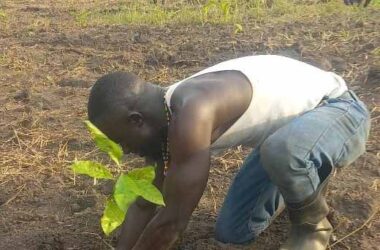By Manas James Okony
Farmers in Pochalla, Greater Pibor Administrative Area (GPAA), are facing a devastating crisis as a swarm of worms has infested their field crops, prompting urgent appeals for intervention from agricultural agencies.
The distressing situation highlights the vulnerability of smallholder farmers in a region already grappling with numerous challenges, including food insecurity and limited access to agricultural resources.
The town of Pochalla, known for its diverse agricultural activities, heavily relies on subsistence farming for food production and economic sustenance.
The area’s farmers typically cultivate crops such as maize, sorghum, and cassava, which are essential for both household consumption and local markets.
In recent years, changing climate patterns and inadequate infrastructure have made farming increasingly precarious, compounding the difficulties faced by these communities.
In an interview with No. 1 Citizen Daily Newspaper, several affected farmers said the current crisis began about a week ago, when they first noticed the alarming infestation.
They expressed their despair as they watched their crops succumb to the worms.
Okwom Otwer, one of the distressed farmers, described the situation as shocking.
“This year, rains started earlier, and so was the planting, filling us with hope of a good harvest to sufficiently feed ourselves,” he explained.
However, he lamented that the pests have specifically targeted their maize crops—devouring the leaves, stem, and cobs, which are vital parts of the plant.
Another farmer, Paul Omot Oman, echoed the concerns regarding the infestation, stating, “Our maize are being withered up in farms by these worms. We will have no harvest if this continues, so we appeal for intervention.”
The farmers’ collective fear is not unfounded, as a failed harvest would severely impact their food security, pushing them further into poverty and hunger.
Otho Okoti, the Pochalla South County commissioner, also expressed concerns about the situation and called for immediate attention from agricultural agencies to assess the situation and provide the necessary support.
“We assessed the situation and found out that about 100 farmers have their maize plantations affected by this. We lack pesticides to tackle this. So we appeal for intervention lest we go hungry this year,” he pleaded.
As the infestation continues to threaten the livelihoods of Pochalla’s farmers, the need for rapid intervention becomes crucial.
The plight of these farmers serves as a stark reminder of the fragility of food systems in vulnerable regions and the urgent need for sustainable agricultural practices and support to secure livelihoods in the future.



